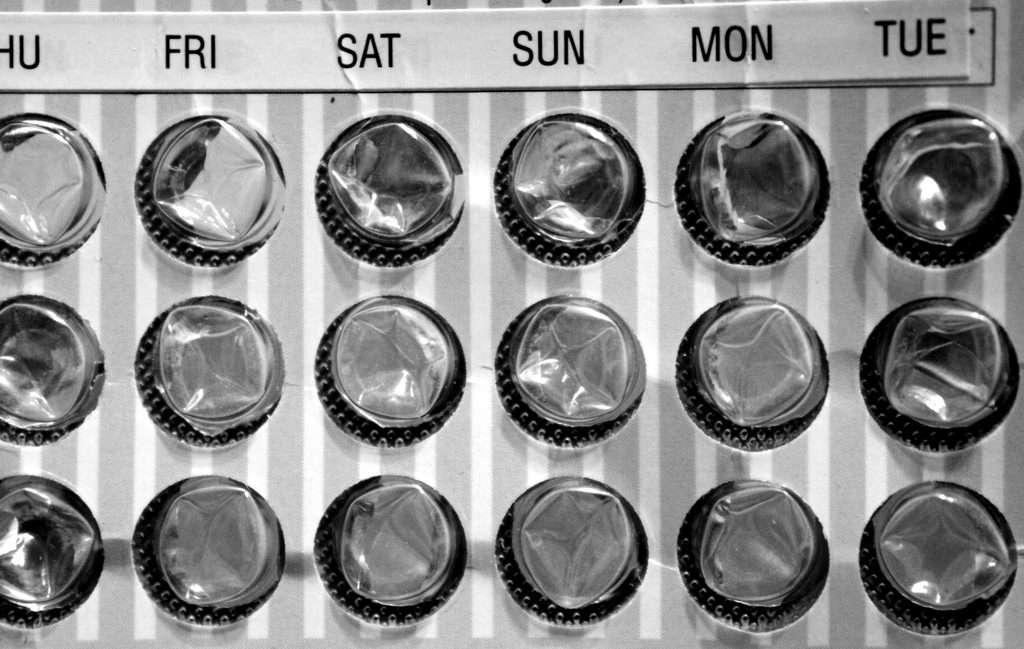Over-the-Counter Birth Control Garners More Republican Support


In the topsy-turvy world of mainstream feminism à la 2014, ending the prescription-only status of birth control pills would actually decrease their accessibility. Meanwhile it's largely conservative, male politicians calling for the pill to be sold over-the-counter. This week Thom Tillis, a Republican running for the U.S. Senate in North Carolina, became the latest to vocalize his support.
"I think over-the-counter oral contraception should be available without a prescription," said Tillis in a Wednesday debate with Democratic Sen. Kay Hagan. "If you do those kinds of things, you will actually increase the access and reduce the barriers for having more options for women for contraception."
Tillis joins the ranks of Republicans Ed Gillespie (running for a U.S. Senate seat in Virginia), Mike McFadden (running against Democratic Sen. Al Franken in Minnesota), Louisiana Gov. Bobby Jindal, and Colorado Rep. Cory Gardner. Many have accused these men of using support for over-the-counter birth control as a cheap ploy to win over women voters. That seems entirely likely, and also entirely okay, to me. Politicians suddenly discover their support for all sorts of policies when it proves politically advantageous to do so. If it's good policy that they've come around to, I don't really care what got them there.
And making birth control pills more widely available is good policy. All but a small segment of social conservatives agree that increasing people's access to safe, affordable contraception can cut down on unwanted pregnancies and, in doing so, a host of other societal ills as well. The trouble now arises when we try to agree on what "increasing access" means.
As recently as a few years ago, it seemed like most prominent feminists supported over-the-counter sales of birth control. They cheered when the American College of Obstetricians and Gynecologists announced its support. ANd when the U.S. Food and Drug Administration (FDA) was considering making emergency contraception Plan B non-prescription (which it ultimately did), many wrote in favor of not just this but scrapping the prescription status of all birth control pills. Here's Feminist Majority Foundation President (and Ms. publisher) Eleanor Smeal in 2011:
Women must not be forced to jump unnecessary hurdles to obtain safe and effective contraception. Men and boys of all ages can obtain condoms easily, without interference from any governmental authority. Women and girls deserve equal treatment and respect, at the minimum.
But "Obamacare has changed the terms of the debate," as the Los Angeles Times put it. Now some feminist activists and writers say no-copay contraception covered by insurance is the one true way improve access. Over-the-counter birth control is no longer "accessible" enough because people would have to pay on their own.
There are a lot of strange assumptions baked into this sort of opposition. The first is that over-the-counter birth control necessarily takes the place of insurance coverage for birth conrol pills. That may be what some pushing for OTC birth control wish, but there's no reason the two things have to be mutually exclusive. Nor would OTC pills seem to change anything about insurance coverage of other contraception forms, such as intrauterine devices (IUDs) or the Nuva Ring.
The biggest misconceptions, however, seem to surround cost. Opponents point out that under Obamacare women can now get birth control pills with no co-pay, but without insurance coverage they may have to pay some $600 per year for birth control pills. But the pill's current prescription-only status has inflated its price, because pharmaceutical companies don't actually have to compete in the consumer marketplace. Doing so would almost inevitably lead to lower cost pills all around or pills sold at various price points, as we see with other non-prescription drugs.
What's more, it makes no sense to compare the cost of prescription birth control to the cost of buying pills over the counter. When you're shopping OTC, you're only incurring the cost of the pills themselves. When we're dealing with prescription birth control, women must also factor in the cost of the at-least yearly doctor visits required to get a birth control permission slip, and the costs they're paying for their insurance coverage in the first place. Taking those things into account, the price differential between our "free" prescription birth control pills and our free-market OTC pills begins to shrink considerably.
Lastly, affordability isn't the only factor in making something accessible. Those championing the contraception mandate as a way to increase access assume everyone always has insurance coverage. What about undocumented women? Or those between jobs and temporarily uninsured? What about young women who can't let their parents know they're on the pill? Or domestic abuse victims who want to keep this information from their husbands? These are just a few of the situations in which a woman would find OTC pills much more accessible and affordable than the prescription-only kind, even if those prescription pills came with no co-pay.
It's one thing for progressives to question the sincerity of support that male GOP politicians have for OTC birth control (some of it's definitely a bit suspect), but trying to diminish the good OTC birth control could do in order to prop up Obamacare's contraception mandate is inexcusable. Those who claim they want to increase contraception access while panning OTC birth control entirely look a lot more like partisan hacks than people with women's best interests in mind.


Show Comments (30)